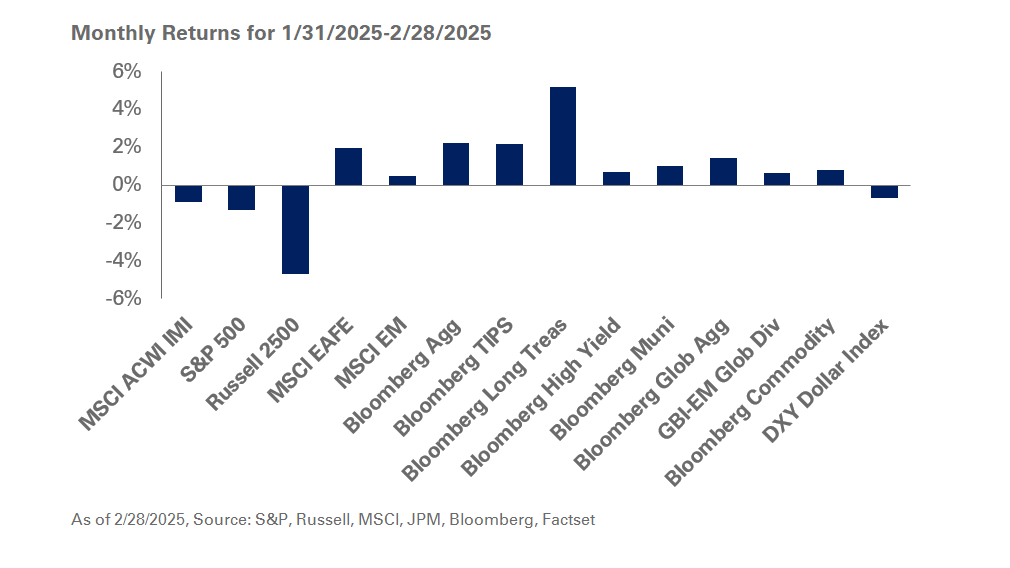At NEPC, the purpose of our Endowments and Foundations practice is to empower our clients with solutions to their complex investment and financial needs. Often times, our best ideas come from collaboration and sharing viewpoints across different teams within the firm. To that end, we extended this spirit of partnership and exchange of ideas to our clients, bringing them and their peers together virtually in a series of roundtables to discuss their challenges and resolutions in these tumultuous and uncertain times.
The most recent discussion centered around faith-based institutions that seek to align their investments with the belief systems that guide their organizations. The roundtable took place against the backdrop of a global pandemic and at a time when these organizations are increasingly being held accountable by donors seeking to ensure their philanthropic dollars align with the values of their belief system. The six participants ranged in size and scale, complexity, geography, and faith. This diversity led to a robust discussion yielding multiple perspectives. We present the highlights from the roundtable below:
Imminent Challenges: Outreach in the Time of COVID-19
Typically, faith-based institutions have a long-term—sometimes even eternal—perspective. That said, none were spared the unique near-term challenges and disruptions presented by COVID-19. To inspire confidence, these organizations ratcheted up the frequency of communications to their donors, communities and stakeholders; however, each group went about it differently. Many noted that being intentional and proactive in communicating furthered trust and, in some cases, contributions.
Virtual video meetings using, for instance, Zoom, became critical in facilitating general assemblies, board meetings and quarterly events. Utilizing breakout rooms provided the more intimate connection that many feared would be lost in a virtual environment. One group, ahead of its general assembly, pre-recorded some sessions on YouTube to reduce the likelihood of technological mishaps. Another organization’s employees underwent leadership training on the tools and technology necessary to get the most out of virtual meetings. This new openness to virtual meetings and the diminished reliance on in-person contact allowed institutions to engage with organizations they had never partnered with before.
Operational Challenges
Some of the organizations that participated in the roundtable entered the pandemic financially healthy and were able to not only survive, but also thrive in 2020. For them, the primary concern was the impact of COVID-19 in 2021 and beyond. Meanwhile, the smaller, more lightly-staffed organizations that had historically run lean were able to utilize the Paycheck Protection Program (PPP) to ensure their staffs were compensated and operations could continue uninterrupted. The more vulnerable institutions placed a greater importance on liquidity within the investment program in case more funds than usual were needed to fund operations.
All participants were united in their concerns around their ability to continue serving against the backdrop of the pandemic. One of the participants noted it operates across 35 states, each of which had different regulations on what is permissible. Perhaps the greatest challenge for this group was serving in various care facilities since volunteers were not able to provide the in-person services those in need had come to cherish. For those organizations that serve on an international scale, the challenges were slightly different. They looked to their local directors, based in different countries, for guidance as the virus tore across the globe. It was vital for these institutions to get the requisite permissions, so they could continue to serve the most vulnerable populations—segments that were likely the worst hit by the pandemic—in emerging countries.
Faith-Based Initiatives
The final topic of conversation was how each of these institutions is implementing faith-based investing or aligning its investments with the values of its respective faith. Interestingly, the participants ranged from a newer non-profit that had not yet begun discussions about faith-based investing to a large, well-established group that had nearly 80% of its portfolio invested in strategies that aligned with the principles of Socially Responsible Investing that mirrored the tenets of its faith. Strategies such as utilizing negative screens, investing in managers that include environmental, social and governance (ESG) factors in their investment processes, committing to thematic private markets strategies, and filing shareholder resolutions were all mentioned as ways in which faith-based institutions are aligning their portfolios with their values. Central to each institution’s ability to successfully integrate its faith into its portfolio is creating a document with stakeholders that addresses the importance of these values and how they will be reflected in the investment portfolio. As committee members turn over, a document that can serve as the foundation for, and provide continuity to these efforts is critical.
Regardless of religion, the topic transcending all faiths was that of racial equity. All participants agreed that the issue of systemic racism and inequity concerned leaders of all faiths and communities. While some work in the investing world has been done in this area, participants unanimously said they would welcome more transparency from corporations on the racial diversity in their boards and/or management positions. The roundtable participants also indicated their reliance on consultants or service providers, for instance Sustainalytics, to assist them in their efforts to identify such investment prospects.
Key Findings
The robust roundtable discussion yielded the following three takeaways:
- Communication is critical and evolving to change is vital: The organizations that were able to adapt their communications to the changing needs and patterns of their communities emerged with stronger relationships with donors and key stakeholders.
- Volunteerism is an important part of the economy: Although many of the economic headlines during the pandemic focused on corporate America, it became increasingly clear that the non-profit world plays a critical role in the economy and is inextricably intertwined into the fabric of our nation.
- A growing desire to tackle racial inequities is prevalent irrespective of the particular faith of the organization: The desire for these groups to act as agents of change in racial equality is universal.



